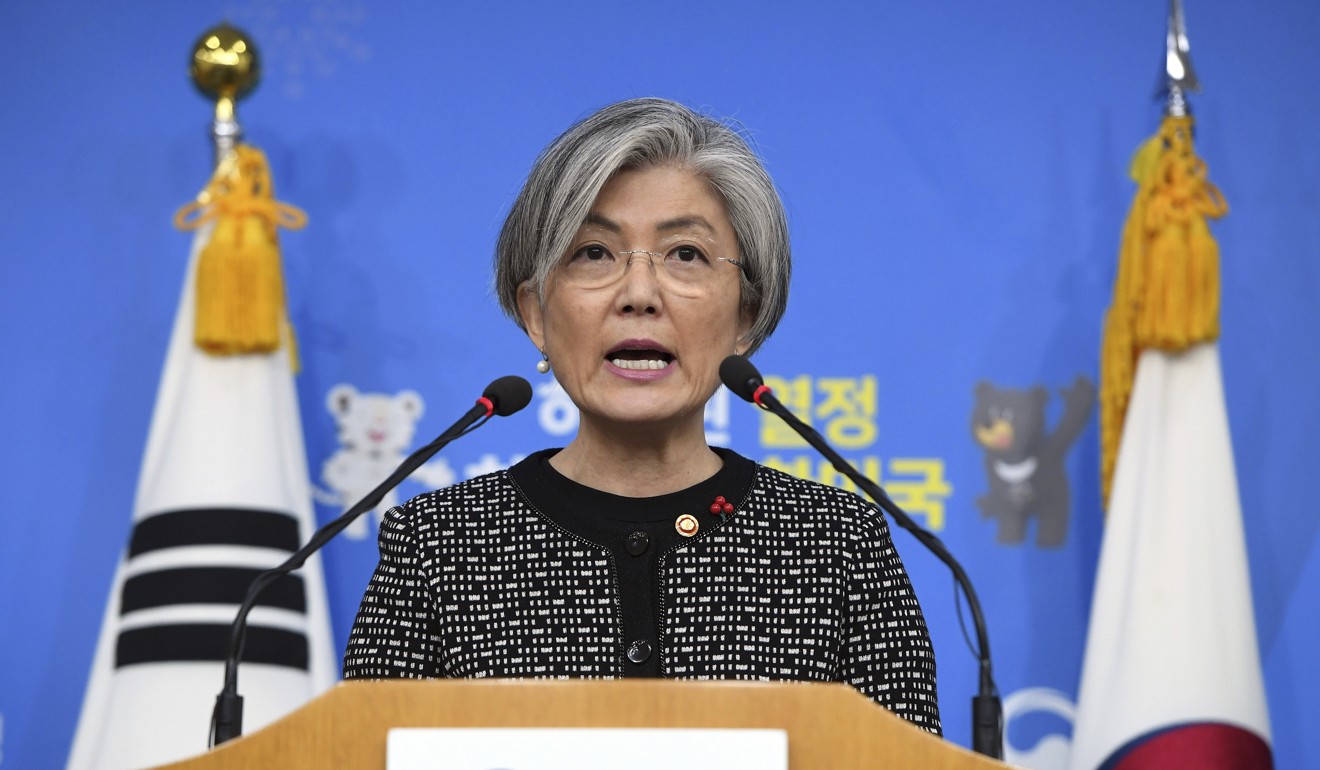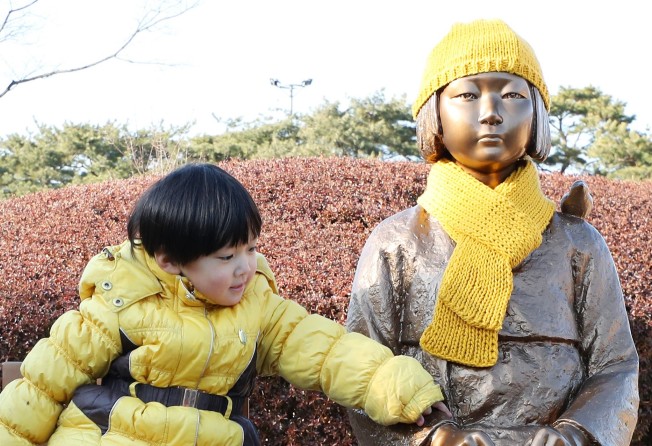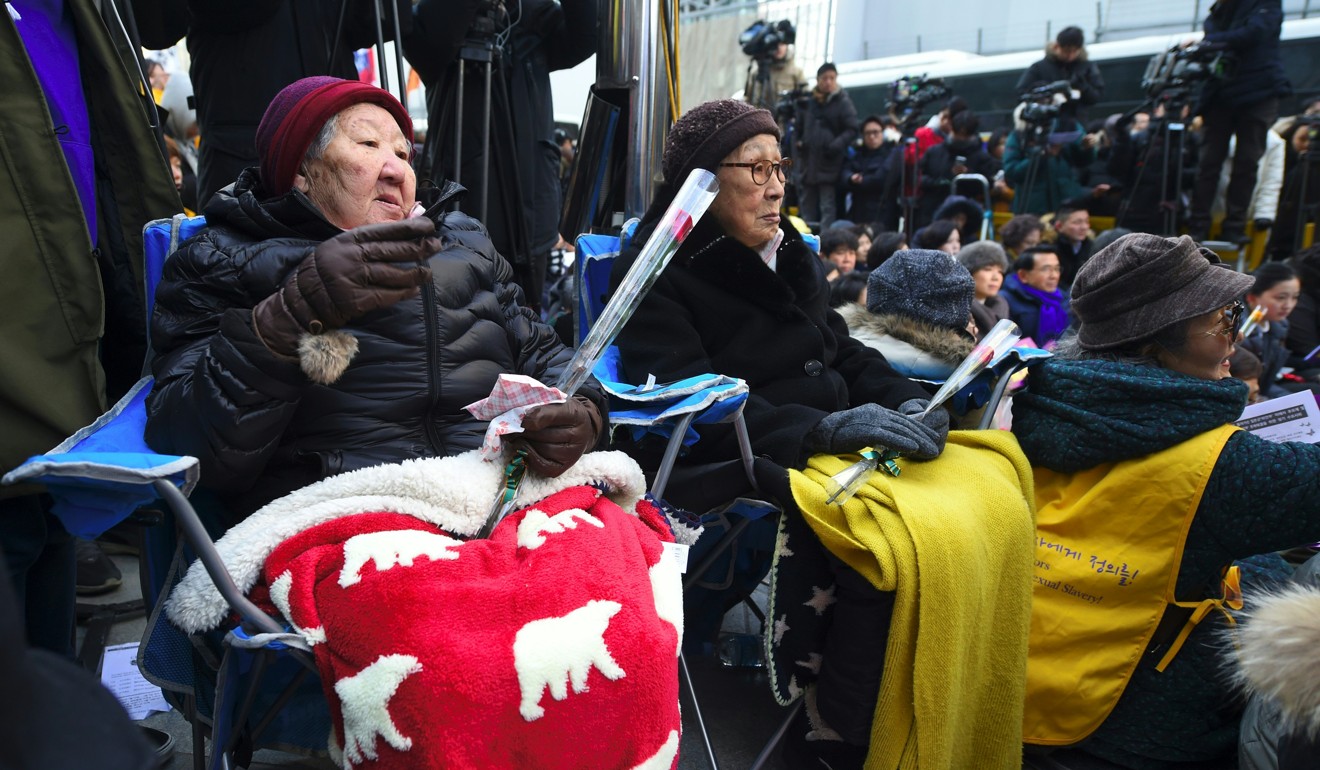
South Korea says war sex slave row with Japan unresolved despite 2015 deal
South Korean government report said that it had failed to sufficiently gather opinions from women who were forced to work in Japanese wartime military brothels, before reaching 2015 deal with Japan on ‘comfort women’

A 2015 deal with Japan over South Korean “comfort women” forced to work in Japan’s wartime military brothels failed to meet the victims’ needs, South Korea said on Wednesday, throwing ties into doubt as both countries seek to rein in North Korea.
South Korean Foreign Minister Kang Kyung-wha apologised for the controversial deal as a panel appointed by her in July to investigate the negotiations leading up to the agreement unveiled its results.
“I apologise for giving wounds of the heart to the victims, their families, civil society that support them and all other people because the agreement failed to sufficiently reflect a victim-oriented approach, which is the universal standard in resolving human rights issues,” Kang told a news conference.
Under the deal, endorsed by South Korean President Moon Jae-in’s predecessor and Japanese Prime Minister Shinzo Abe, Japan apologised to former comfort women and provided 1 billion yen (US$8.8 million) to a fund to help them.

The two governments agreed the issue would be “irreversibly resolved” if both fulfilled their obligations.
But Moon has said the South Korean people did not accept the deal.
The investigation concluded that the dispute over the comfort women, a Japanese euphemism for the girls and women, many of them Korean, forced to work in wartime brothels, could not be “fundamentally resolved” because the victims’ demand for Japan’s legal compensation had not been met.
Tokyo, however, insists the matter of compensation for the women was settled under a 1965 treaty with Seoul.
On Wednesday, Japanese Foreign Minister Taro Kono saying that seeking to change the 2015 deal is “totally unacceptable”.
“We see no problem in the process leading to the accord, which followed a legitimate negotiation process between the two governments,” Kono said, adding that Tokyo “strongly demands” Seoul steadily implement the deal.
Kono lamented the report’s criticism of the deal, adding the Japanese government believes the accord was “highly acclaimed by the international community”.
“If the South Korean government seeks to change the accord ... based on this report, Japan-South Korea relations will become unmanageable and [it would be] totally unacceptable,” Kono said.
Before the South Korean report was published, Japanese Chief Cabinet Secretary Yoshihide Suga said the agreement that the issue had been resolved “finally and irreversibly” had been confirmed by both governments.

“It is extremely important that this agreement be steadily implemented,” Suga told a regular news conference.
“The government will continue tenaciously to urge the South Korean side at every opportunity to steadily implement this agreement.”
South Korea and Japan are key to international efforts to rein in North Korea’s nuclear and missile programmes that it pursues in defiance of UN Security Council resolutions.
The comfort women issue has been a regular cause for contention between Japan and neighbours China and North and South Korea since the war.
Japan colonised the Korean peninsula between 1910 and 1945 and occupied parts of China before and during the second world war.
The South Korean government will review the result of the investigation and translate it into policy after consulting victims and civic groups that support them, Kang added.
Additional reporting by Kyodo